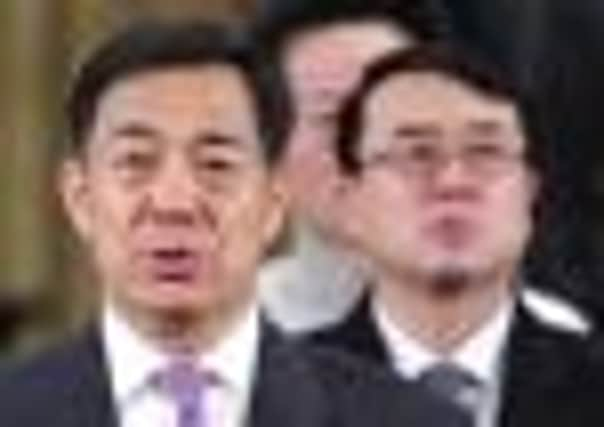His right-hand man and wife are in jail – so what now for Bo?


Bo Xilai’s former right-hand man and police chief, Wang Lijun, was sentenced yesterday to 15 years in prison for making a thwarted defection bid and for helping Mr Bo’s wife cover up the murder of British businessman Neil Heywood. Mr Bo’s wife and other figures in the scandal have already been sentenced, and Beijing is keen to settle the fate of Mr Bo before a once-a-decade change in leadership expected next month.
Since Wang’s defection bid at a US consulate in February made the scandal public, the question of what to do about Mr Bo, then a powerful party boss in Chongqing city, has bedevilled Chinese leaders. It has strained relations among Communist Party power brokers just as they were cutting deals to transfer power to younger leaders: deciding whether to prosecute Mr Bo or merely purge him from the party became part of the bargaining.
Advertisement
Hide AdAdvertisement
Hide AdWang’s trial and verdict bode ill for Mr Bo. The official account of the trial implied the latter ignored his wife’s involvement in the murder after Wang told him about it. Though it referred to Mr Bo by his position rather than his name, the account marked the first time in weeks of trials that he was mentioned in any way.
Debating Mr Bo’s fate is one of the issues that has delayed the announcement of a National Party Congress, a pivotal event in installing the new generation of leaders. With verdicts for Wang and Mr Bo’s wife out of the way, leaders are next expected to announce dates for the congress and for a preparatory meeting to deal with Bo.
“The lack of a date for the congress appears to be evidence still of divisions over Bo and the final leadership line-up, as well as questions of political reform and other sensitive issues,” said Jean-Pierre Cabestan, head of the department of government and international studies at Hong Kong Baptist University.
Mr Bo’s case is extremely sensitive because of his political pedigree and his popularity. The son of one of the Communist state’s founding fathers, he has deep connections across the party, government and military. He was one of 25 Politburo members and became popular nationwide through high-profile policies in Chongqing, including a crackdown on organised crime run with Wang.
Mr Bo seemed destined for the top rung in the leadership before the scandal enveloped him in April. But his overt campaigning for a top political job, the excesses of his and Wang’s anti-mafia crusade and a publicity campaign to promote 1950s-style Communist culture angered other leaders.
Given the leadership’s ultimate control of the courts, the trials of Wang and Mr Bo’s wife, Gu Kailai, were without doubt part of pre-agreed arrangements that include a resolution of Mr Bo’s fate. Both Wang and Gu, who was given an effective life sentence, confessed to the crimes they were charged with, and both declined to appeal.
Mr Bo was not called as a witness, or mentioned by name, in the official accounts of either Gu’s or Wang’s trial, a sign of how the party is seeking to guide the process and minimise the impact, said National University of Singapore China expert Bo Zhiyue.